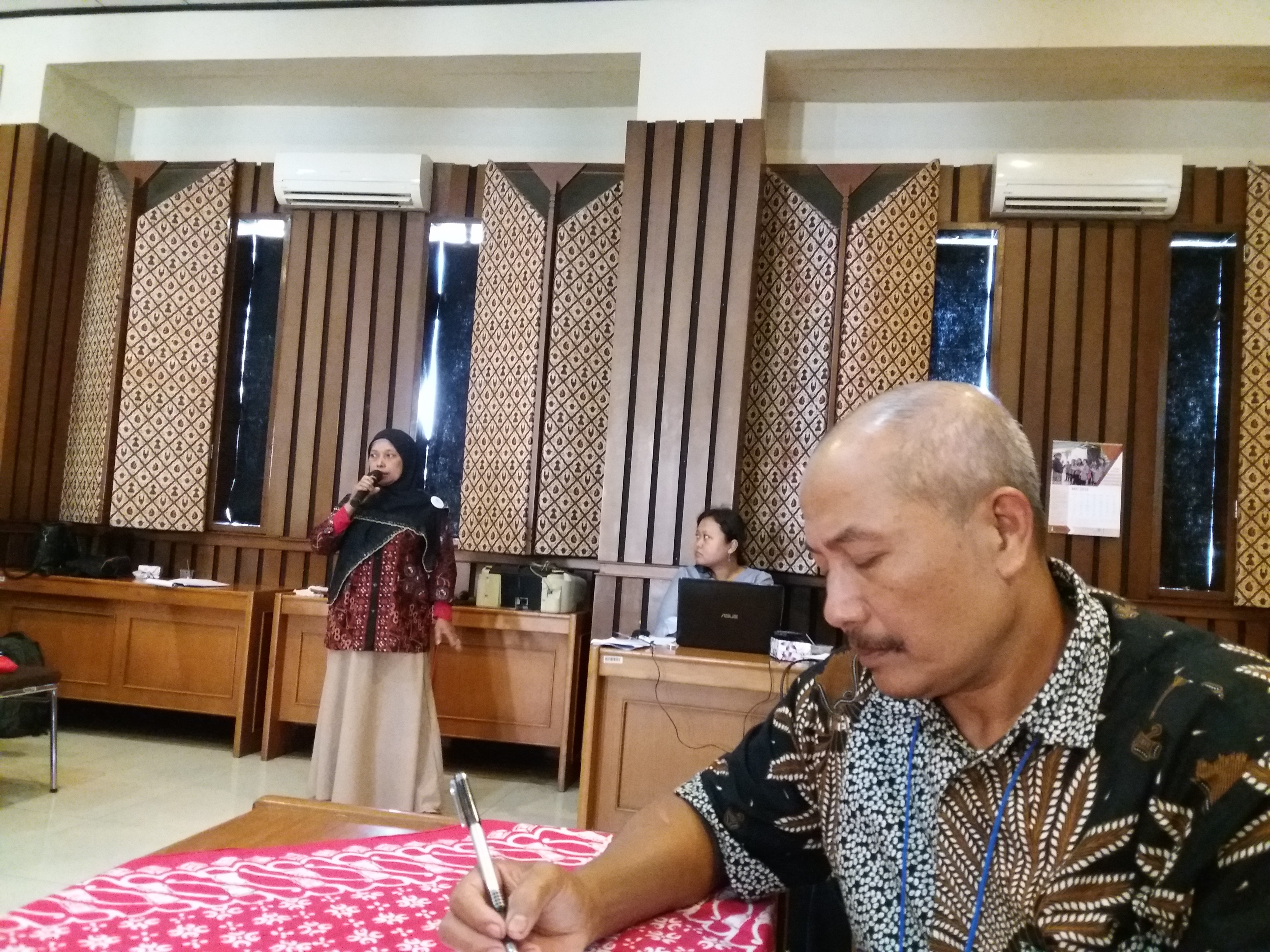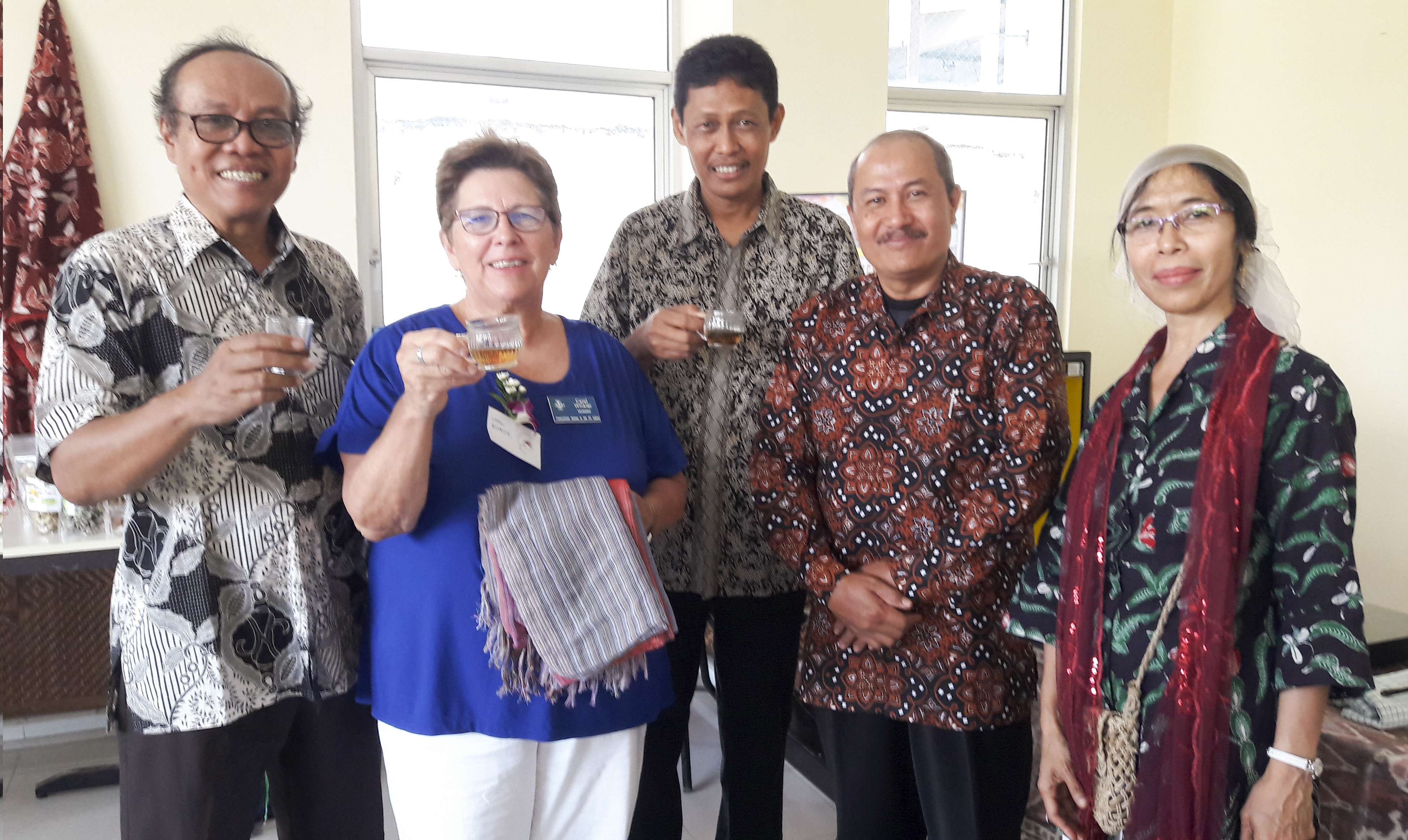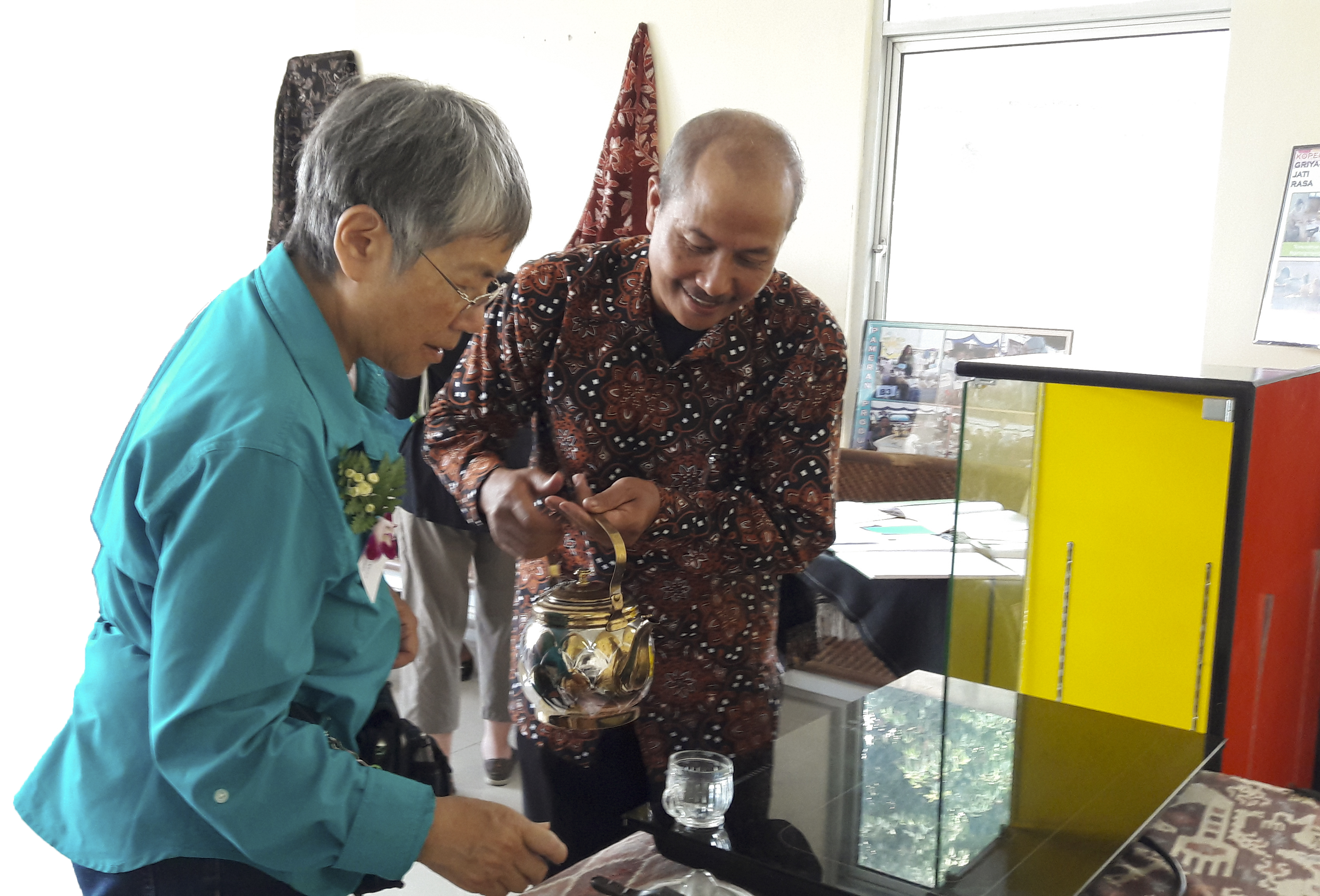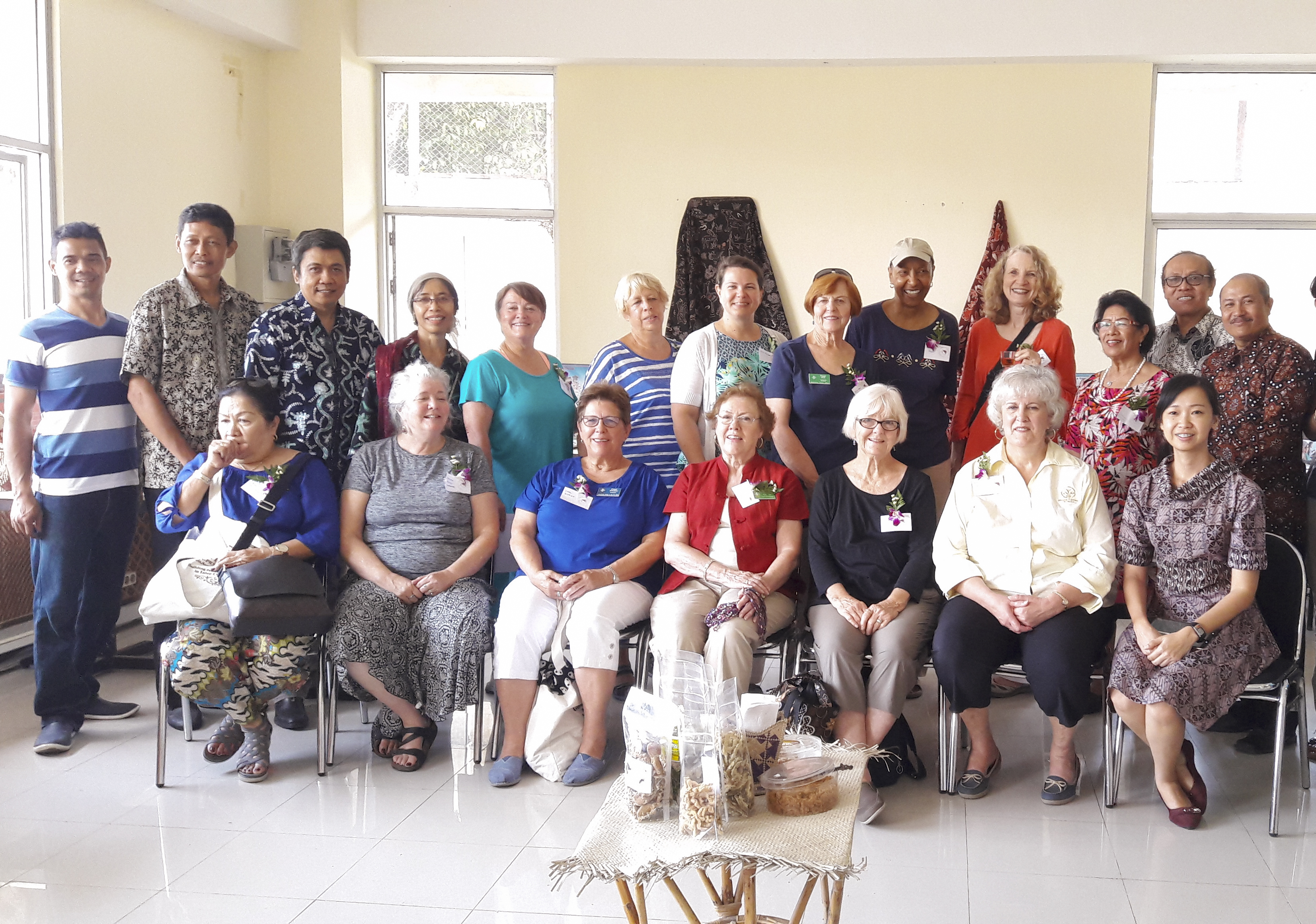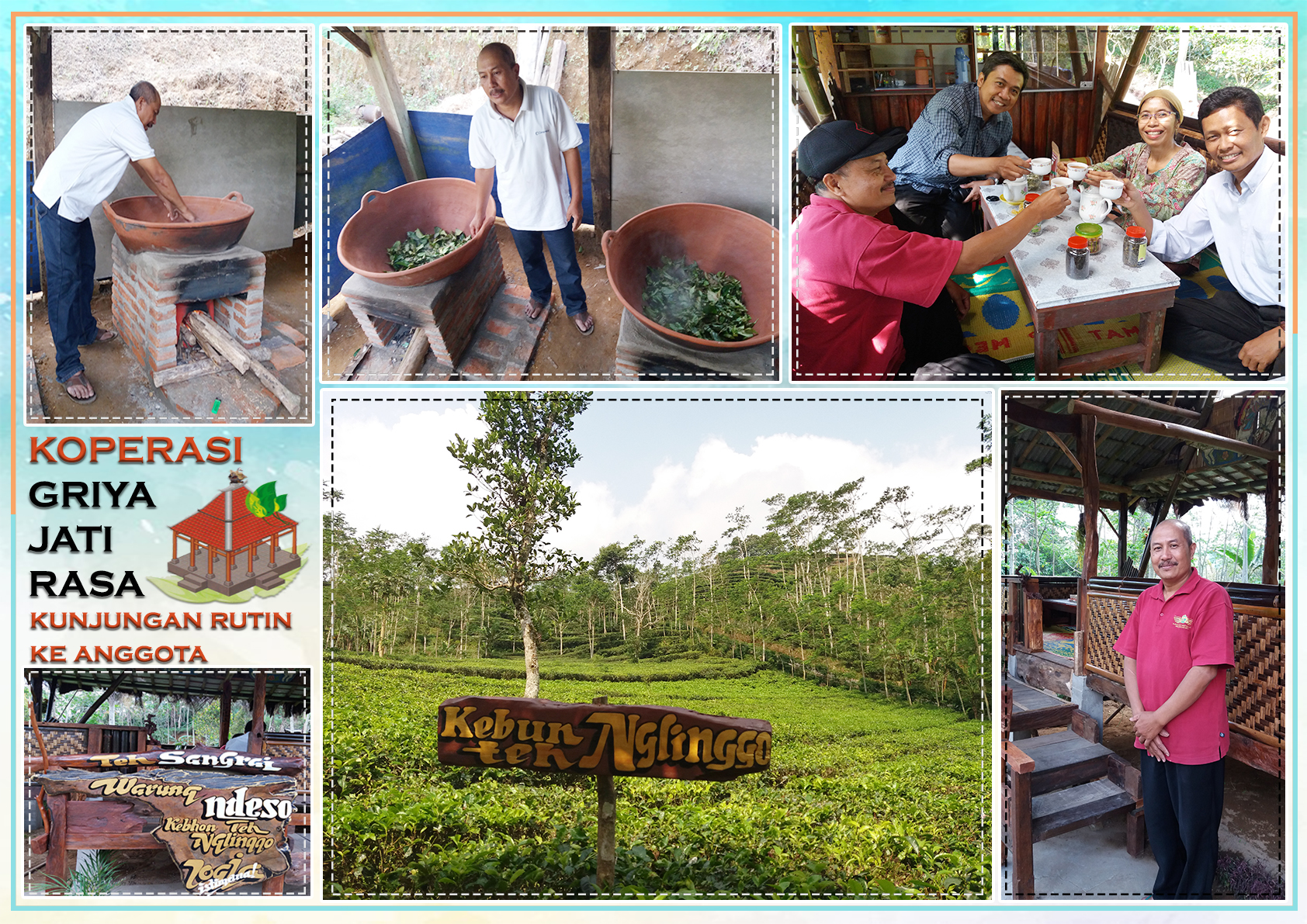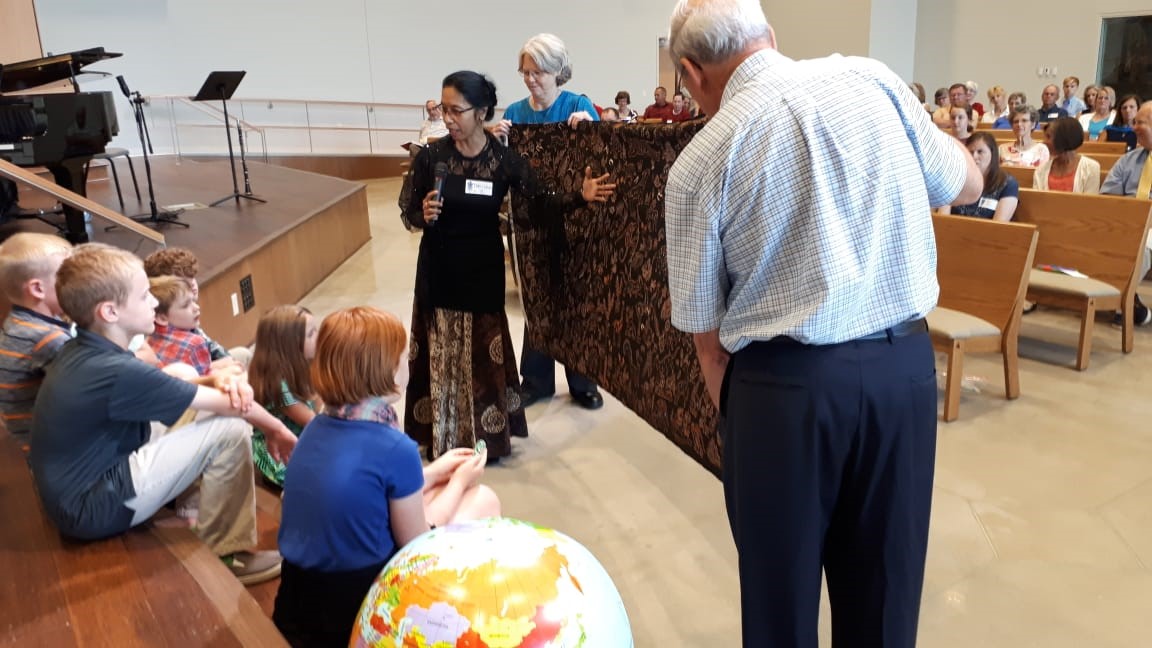A Letter from Bernie and Farsijana Adeney-Risakotta, serving in Indonesia
September 2018
Write to Bernie Adeney-Risakotta (or baryogya@gmail.com) to Farsijana Adeney-Risakotta
Individuals: Give to E200303 for Bernie and Farsijana Adeney-Risakotta’s sending and support
Congregations: Give to D506007 for Bernie and Farsijana Adeney-Risakotta’s sending and support
Churches are asked to send donations through your congregation’s normal receiving site (this is usually your presbytery)
Subscribe to our co-worker letters
Dear Family, Friends and Colleagues,
Sukahadi, like many tea farmers, labored long hours for very little income. It was difficult to feed his family, let alone pay for their education. Sukahadi knows how to grow fine and delicious teas, but he lacked expertise in marketing or selling his products. He dreamed of living in modest prosperity rather than hand to mouth. Now his dream is coming true.
Sukahadi is a Muslim tea farmer who participated in our workshop on globalization at Duta Wacana Christian University in May 2018. I met Sukahadi at a photo exhibition in November 2016 at our university. Sukahadi and other farmers were pictured in photos designed to show the human side of the beautiful tea plantations. The villagers have been growing tea for 20 years, but they are still far from prosperous. Students from the university photography club asked me to guide them in using social analysis to help bring a humane perspective to their photo exhibition. At my (Farsijana’s) suggestion, the students invited government agencies — like the tourist department, the microbusiness cooperation department and the agricultural department — to discuss how the livelihood of tea farmers can be improved. Photography opened a door for transformation of the farmers’ lives, aided by growing self-advocacy for their own rights.
Since that exhibition, Sukahadi and other Muslim farmers have seen the benefit of working with Duta Wacana Christian University. The workshop on globalization provided another window for the farmers and villagers to understand what has changed within their own area. The Indonesian government is building the New Yogyakarta International Airport (NYIA) near Borobudur, the largest ancient Buddhist temple in the world. Borobudur, a UNESCO World Heritage site, draws tourists from all over the world. From the tea plantation, Borobudur looks like a lotus flower. The NYIA will be connected to Borobudur with a highway that goes through the tea plantation and other mountain villages. Sukahadi requested that we accompany his village in facing the globalization that is coming to their area. This will include millions of foreign tourists passing through their community. How shall they respond?
I shared Sukahadi’s concern with our colleagues at the Center for Study of Development and Social Transformation (CSDST) in the Business Faculty of our Christian university. The Center works closely with our foundation, the House of Authentic Sense, to empower villagers through our co-op. We provide entrepreneurship training and advocacy and work with government agencies who help villagers access public programs designed for village development. Sustainable development positions the villagers as the subjects (rather than the objects) of national development.
Our workshop on globalization was sponsored by the CSDST and was the result of working directly with villagers at the grassroots level, building trust over a long period of time. Last year, we had an opportunity to share this work with a delegation of 22 American women who came to Indonesia through the global exchange program carried out by Presbyterian Women. They had a chance to visit villages, meet the farmers and drink the tea produced by Sukahadi and his friends. The Presbyterian Women delegates were very interested in this ministry that brings social justice and interreligious reconciliation to farmers. They encouraged me to apply for a grant from Presbyterian Women. I wrote a proposal based on expanding the work we were already doing, with special emphasis on mobilizing a Christian university to work with Muslim villagers to help them respond creatively to the building of a huge international airport in their community. You can read about it in the January-February 2018 edition of “Horizons Magazine.”
There are important benefits of bringing faculty and students from our Christian university to work with Muslim villagers. It helps Christian faculty and students think about how their knowledge can be used for the glory of God and the good of society, not just for their own benefit. It also helps villagers escape poverty and find creative ways to feed their families. And, such collaboration brings interreligious understanding and mutual respect. Muslims and Christians recognize each other as brothers and sisters who face many of the same challenges. Muslims and Christians do not agree on many important religious issues, but that is not a reason they cannot respect each other and work together for the common good.
Bernie and I have both helped prepare a “Christian-Muslim Relations Toolkit” for the PC(USA) that provides resources for building positive relations between Muslims and Christians in the USA. A core focus of our mission is to bring reconciliation, justice and peace between communities that have all too often been torn apart by fear, suspicion, hatred and violence. As Paul wrote, “All this is from God, who reconciled us to himself through Christ and has given us the ministry of reconciliation.”
Recently, I gave the children’s sermon at First Presbyterian Church of Champaign in Illinois, and I showed the kids a picture of Bernie and his Muslim students that appears on the back of the Christian- Muslim Toolkit folder. A boy responded, “Wow, do you work with Muslims?” I answered, “Yes! We share the love of Christ with our Muslim sisters and brothers.” The children were happy to hear this — I saw it in their eyes!
Bernie has reached a major milestone by publishing his long-awaited book, Living in a Sacred Cosmos: Indonesia and the Future of Islam. The book was published in August 2018 by Yale University, Southeast Asia Studies and is available from Amazon or from Yale. There are currently more Muslims in the world than the combined populations of China and the United States. As the world’s largest Muslim country and one in which there is also a thriving Church, can Indonesia affect the future of Muslim-Christian relations? We invite you to purchase the book and appreciate your prayers that it may bring fresh perspectives about Islam to many people.
In June, Bernie and I arrived in the USA for our “interpretation assignment,” a marvelous opportunity to visit churches and universities all over the USA and share our perspectives on Muslim-Christian relations in Indonesia. My experience began with a wonderful chance to be a Mission Advisory Delegate to the 223rd General Assembly of the Presbyterian Church (U.S.A). I learned a great deal about how the PC(USA) works, and I served on the Social Justice Committee, where I had the opportunity to shape the theological background of a resolution on gun violence.
We are so thankful to you, our sisters, brothers and congregations of the PC(USA) who pray for us and support our work in Indonesia. Without your tangible support, our work could not continue. If you share our vision for reconciliation, justice and peace among people of all faiths in Indonesia, please consider subscribing to our newsletters and supporting us financially. Thank you for being partners with us in the “ministry of reconciliation.”
Salam hangat (warm peace),
Farsijana and Bernie Adeney-Risakotta
![]() You may freely reuse and distribute this article in its entirety for non-commercial purposes in any medium. Please include author attribution, photography credits, and a link to the original article. This work is licensed under a Creative Commons Attribution-NonCommercial-NoDeratives 4.0 International License.
You may freely reuse and distribute this article in its entirety for non-commercial purposes in any medium. Please include author attribution, photography credits, and a link to the original article. This work is licensed under a Creative Commons Attribution-NonCommercial-NoDeratives 4.0 International License.
